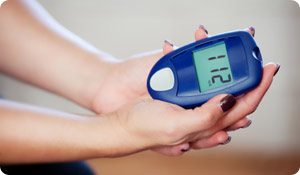
According to the Food & Drug Administration (FDA), there are roughly 25 over-the-counter glucose meters commercially available to consumers. Although the technology behind them may be similar, there are several differentiating factors to consider before making a purchase. Meters generally differ in the following ways:
- Amount of blood needed for a proper reading
- Testing speed
- Overall size
- Ability to store test results in memory
- Ability to utilize alternate site testing
- Cost of the meter
- Cost of the test strips needed for a particular model
- Accuracy
As previously mentioned, there are inherent similarities among the leading glucose meters. For example, the majority of meters require only a small blood sample for testing, usually just 0.3-1.0 microliters of blood. The testing speed itself varies across the models, typically taking between 5 and 10 seconds for the results to register. If your healthcare team has suggested keeping a journal or a record of test results to be shared with your doctor, a model with software and memory makes that easy. By storing the results and downloading them, you can have a detailed account of test results that you can even e-mail to your doctor's office. Most models have this ability and, in general, the capacity is between 250 and 450 tests. Alternate site testing is generally available, allowing you to test from your upper arm or thigh. If you want to be able to give your fingers a break, this is definitely a feature you should look for.
The cost associated with the glucose meter, and the peripherals needed to carry out the tests, is something to consider as well. Be sure to check with your medical insurance provider in order to determine what brands are covered. It is also crucial to understand whether test strips are covered as well. The cost of the test strips over the lifetime will surpass the cost of the glucose meter--and understanding what is and isn't covered will save you a great deal of money.
When shopping for a glucose meter, ask yourself the following questions:
- Does the meter come with a control solution or test strip to check for accuracy?
- Does the meter require cleaning?
- Does the meter use strips or cartridges?
- Do I or my doctor wish to store and download the results to keep a test history?
- Do I want the device and supplies to fit into a pack or pouch?
- Does my insurance cover the device and testing supplies?





